The School of Environment and Energy Engineering was initiated and merged from the Pancreatic Soaps and Cosmetics Division of Imperial Junior Industrial School of Peking in 1912, the Civil Engineering Division of Peking Municipal Senior Vocational School in 1936, and the Sanitary Engineering Department of Beijing Municipal Industrial School in 1950. In 1958, the Department of Municipal Engineering was established and then was renamed the Department of Urban Construction Engineering in 1984, out of which the School of Environment and Energy Engineering was formed in 2006.
The school has six undergraduate degree programs, including Building Environment and Energy Engineering, Water Supply and Drainage Engineering, Environmental Engineering, Environmental Science, Ecological Engineering of Environment, and Energy and Power Engineering. The school offers two doctoral degree programs, namely Heating, Gas Supply, Ventilating and Air Conditioning Engineering and Municipal Engineering. Besides, the school has six academic master's degree programs, namely Heating, Gas Supply, Ventilating and Air Conditioning Engineering; Municipal Engineering; Environmental Science; Environmental Engineering; Building Technology Science; and Architectural Heritage Protection, and two professional master's degree programs of Civil and Hydraulic, and Resources and Environmental.
The school owns eleven on-campus teaching & research centers and around 40 off-campus practice teaching bases, including the National Engineering Practice Education Base, Beijing Scholars Studio, Sino-Dutch R&D Center for Future Wastewater Treatment Technologies, City Gas Center, and other research institutions.
The school has 93 faculty members, including 24 professors and 40 associate professors. In the past five years, the school secured ¥100 million in research grants and more than 60 research projects from national and international funding agencies, including National Major Science and Technology Projects, International Cooperation Projects, National Natural Science Foundation Projects, etc.
The school has been actively engaging in and extending the international academic exchanges and cooperation. With established partner universities, including Auburn University (US), University of Minnesota Twin City (US), University of Alberta (Canada), University of South Wales (UK), University of Nottingham (UK), and University of Tokyo (JAPAN), the school offers extensive global study opportunities. The school is committed to cultivating senior key talents and leading talents with social responsibility, practical ability, innovative spirit, and international vision.
Department
The Department of Building and Thermal Engineering
The Department of Building and Thermal Engineering, based on the development of HVAC and Urban Gas Engineering disciplines, sets up the undergraduate major of "Building Environment and Energy Engineering", which is one of the advanced and key constructing majors in Beijing and one of the National Characteristic Disciplines. The program was founded in 1952, and began to recruit undergraduate students in 1977. In 1993, it began to recruit master's students in Heating, Gas Supply, Ventilation and Air Conditioning Engineering, and in 2019, it began to recruit doctoral students.
The department has 31 full-time teachers, of whom 29% are professors and 54.8% are associate professors. And 81.8% of the teachers with doctoral degrees are engaged in teaching and research.
From 1977 to 2019, the department has trained more than 760 master's degree students and more than 2,650 undergraduate students. Currently, there are 279 undergraduate students studying in department. In the past five years, the employment rate of undergraduates has been above 95%. Graduates have been mainly working in architectural design institutes and the companies and enterprises of construction and installation, heating, gas and real estate in Beijing.
The Department of Municipal Engineering
The Municipal Engineering Department undertakes undergraduate teaching in water science and engineering and the scientific research of municipal engineering. Among them, Water Science and Engineering is one of the earliest majors in BUCEA, dating back to 1948. The full-time undergraduates in Water Science and Engineering were recruited for the first time in 1977; in 2012, Beijing University of Architecture Civil Engineering (BUCEA) and Auburn University in the US jointly launched the "2+2" program for undergraduates of Water Science and Engineering. The Municipal Engineering Department was authorized to offer master degree program in 1993, and doctor degree program in 2018. In 2005, it passed the national evaluation of water science and engineering major in colleges and universities in China for the first time, and then passed the re-evaluation in 2010, 2015, and 2020.
At present, there are 17 full-time faculty members in the Municipal Engineering Department, including five professors, seven associate professors, and five lecturers. Most of them have overseas study experience or visiting-scholar experience in different countries, including the United States, the Netherlands, Japan, Ireland, and the United Kingdom. In recent years, the Municipal Engineering Department has published hundreds of papers, undertaken more than 100 fund projects, including projects supported by the National Natural Science Foundation of China. We have trained a large number of undergraduates and graduate students, and gained a good reputation. Our faculty members have rich knowledge reserves and a good international perspective. Among them, Professor Xiaodi HAO also serves as a regional editor-in-chief at the famous international journal "Water Research".
The Department of Energy and Power Engineering
The Department of Energy and Power Engineering has 15 full-time teachers, including four professors, five associate professors, one associate researcher, and four lecturers. Among them, one is a postdoctoral researcher, and those holding doctoral degrees account for 93.3%. The department is mainly responsible for teaching the undergraduate courses of this major and Fluid Mechanics courses of the whole university. In addition, the department also undertakes the task of training master's candidates in the two disciplines of Civil Engineering and Architecture (Architectural Science and Technology). In 2011, the Energy and Power Engineering Major was approved for the Pilot Program in Training Excellent Engineers by the Ministry of Education.
In recent years, teachers of the Department of Energy and Power Engineering have presided over and completed several vertical and horizontal research projects, such as sub-projects of the National Key Research and Development Program, and the projects supported by the National Natural Science Foundation of China and the Beijing Natural Science Foundation. They have also won the Second Prize of National Science and Technology Invention Award, and a few of provincial and ministerial level science and technology progress awards. Additionally, the teachers of the Department are actively involved in teaching reform and research, and they have published more than ten monographs and textbooks. They have guided students to participate in various national science and technology competitions for many times, and have won many awards.
The Department of Environmental Science and Engineering
The Department of Environmental Science and Engineering has a strong faculty, including 28 full-time teachers and three postdoctoral researchers, among whom 12 are professors and 29 have doctoral degrees. There are three undergraduate majors in the department, namely Environmental Science, Environmental Engineering and Environmental Ecological Engineering. The Environmental Engineering major has passed the Engineering Education Certification. The department has been authorized to offer master degree program in Environmental Science and Engineering (a first-level discipline) and Resources and Environment. The Doctor students in the interdisciplinary disciplines of environmental engineering and architectural heritage protection theory and technology have been admitted. The department has one national experimental teaching demonstration center, five provincial and ministerial scientific research bases, one provincial and ministerial excellent education team, and three provincial and ministerial academic innovation teams. It has formed distinctive features in rainwater control and utilization and sponge city, sustainable sewage treatment and resource utilization, new materials and technologies for environmental remediation, urban low-carbon development and climate governance.
The Center
The Center is affiliated to the School of Environmental and Energy Engineering of Beijing University of Civil Engineering and Architecture, and is an important talent training base of the university. It was approved as the National Experimental Teaching Demonstration Center for Water Environment in 2013 and the National Virtual Simulation Experiment Center for Building Energy in 2015. The center mainly supports the experimental practice teaching of three national first-class majors and two Beijing Municipal first-class majors, and serves the practical teaching of 17 majors in six schools of the whole university.
There are 13 full-time teachers in the Center, including one professor and seven associate professors. The Center has edited seven textbooks and undertook more than ten scientific research projects at or above provincial or ministerial level. It has independently developed 70 sets of experimental teaching equipment, and has obtained more than 10 patents. There are nearly 200 experimental teaching projects, 55% of which are of comprehensive design and innovation.
The laboratories cover an area of 5,700 square meters with instruments and equipment of ¥130 million yuan, including 67 sets of large instruments and equipment of more than ¥0. 4 million yuan, meeting the requirements of research in the fields of building energy, energy conservation and water resources.
Faculty



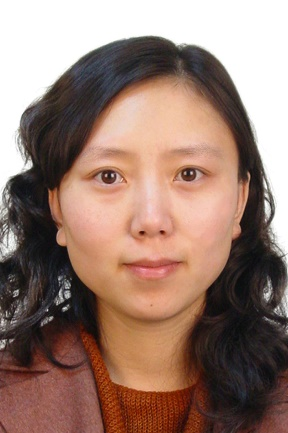
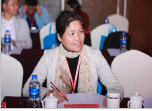


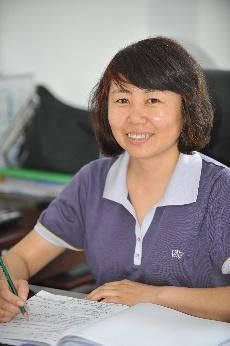
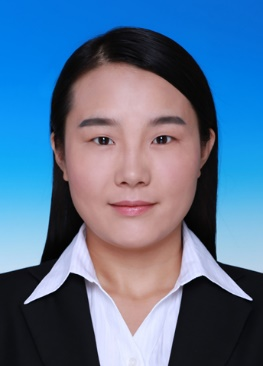
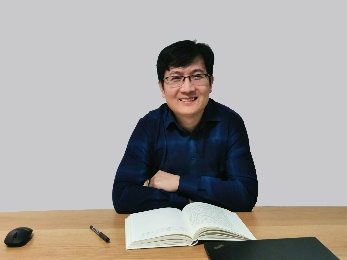
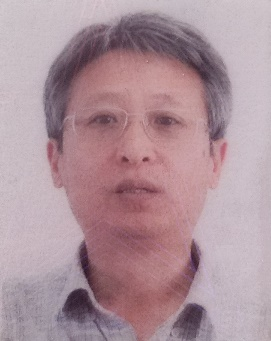

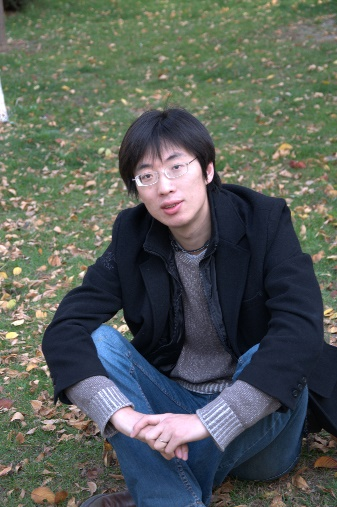
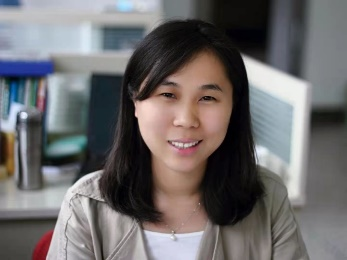

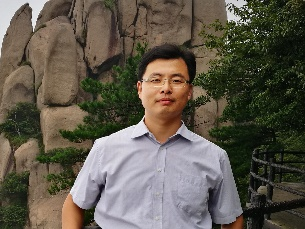


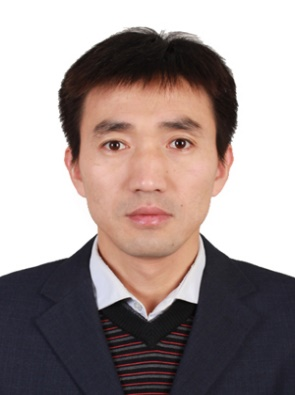
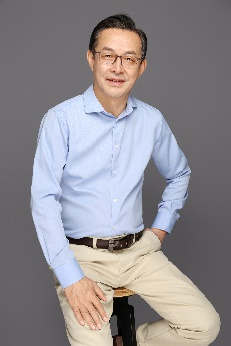
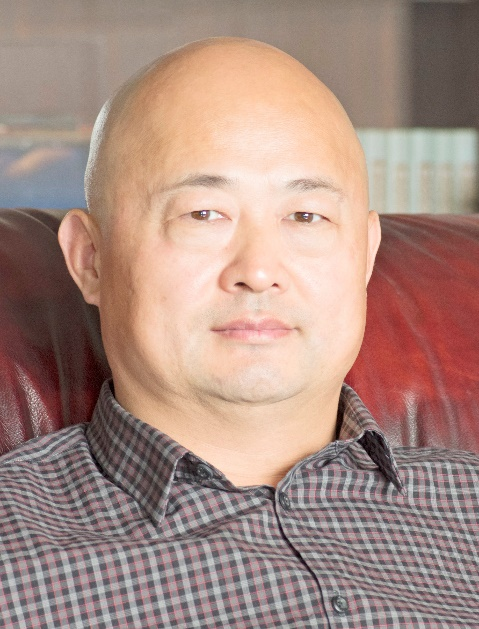

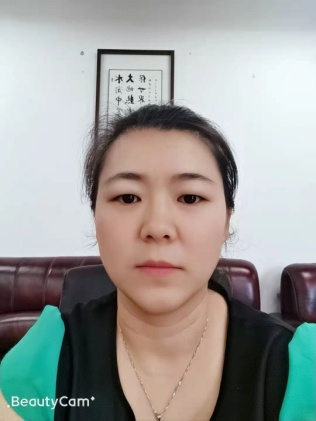
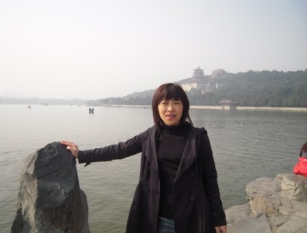
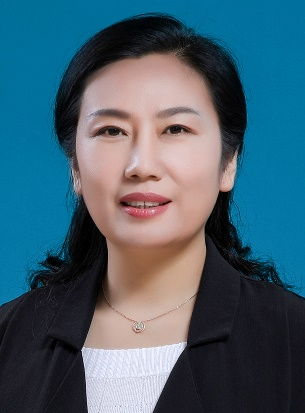
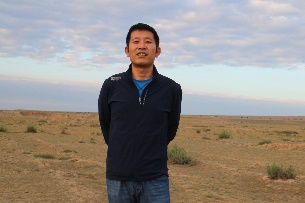
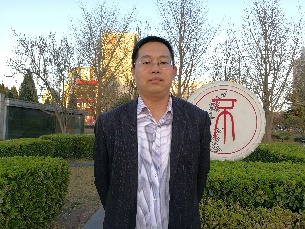
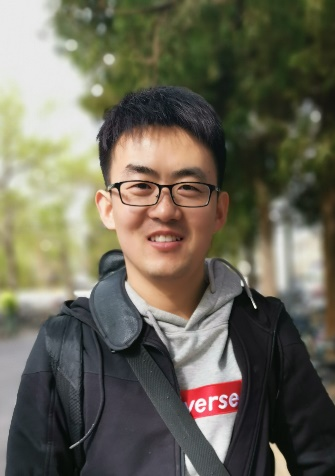
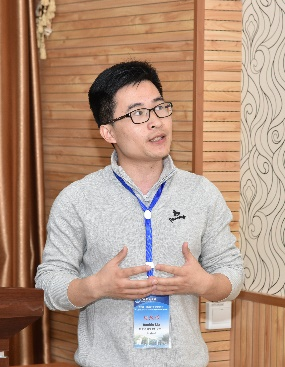


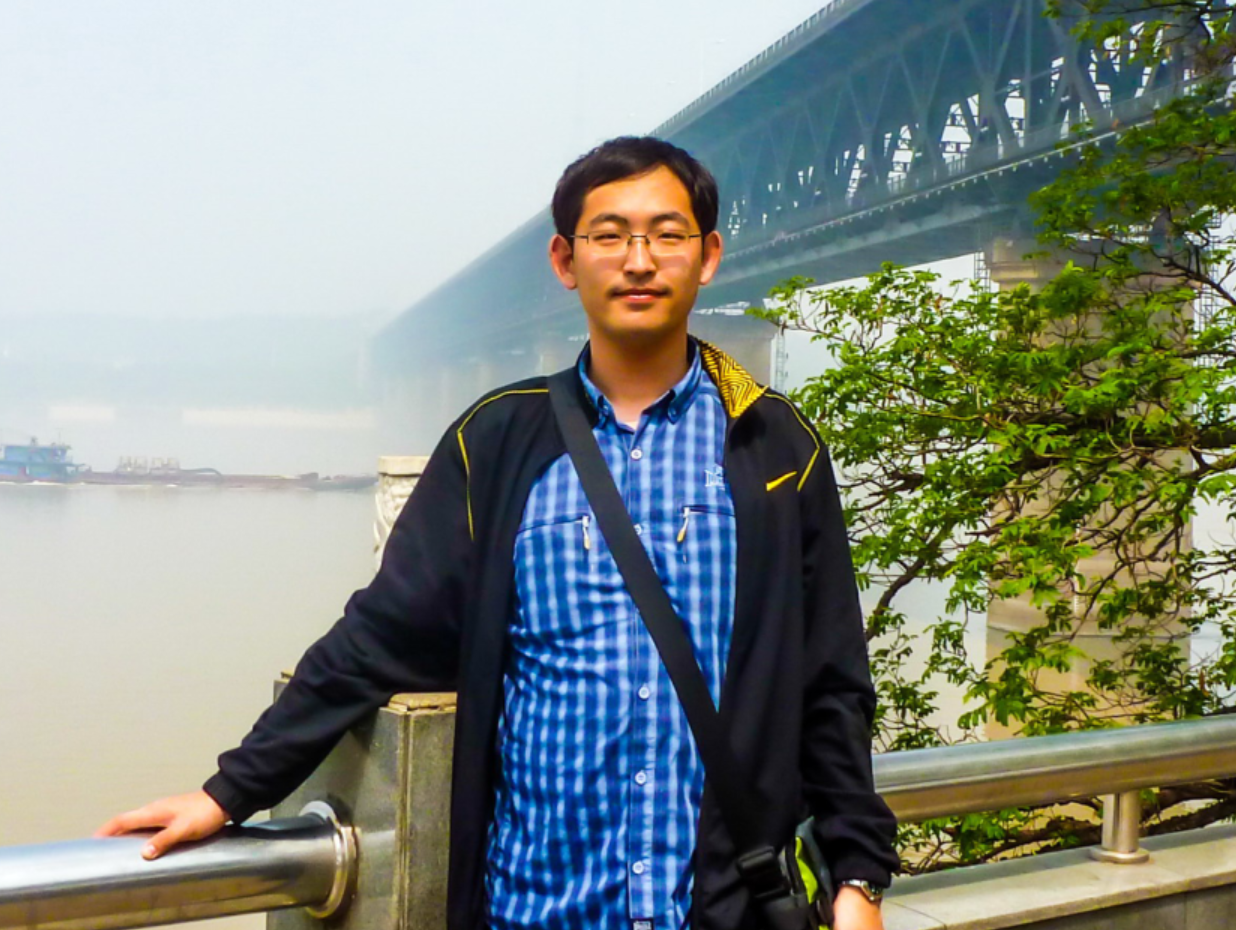
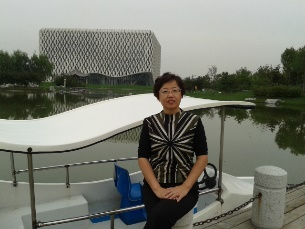
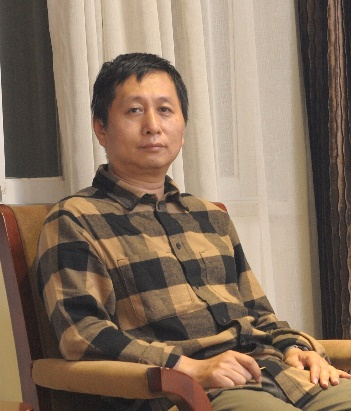
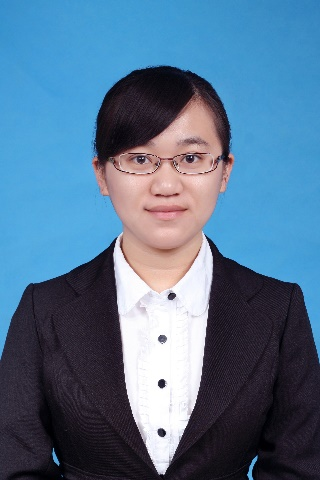
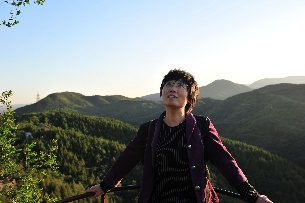
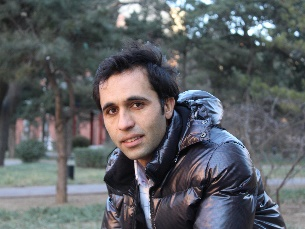
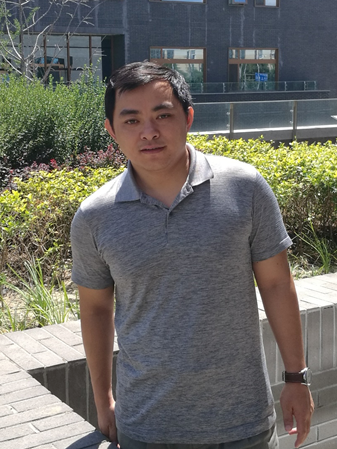
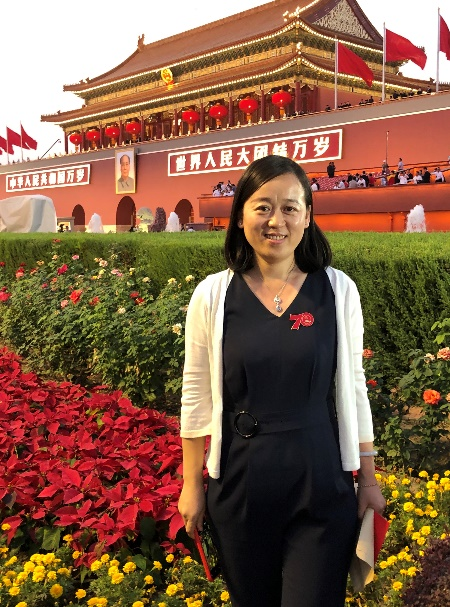

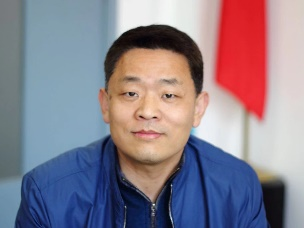
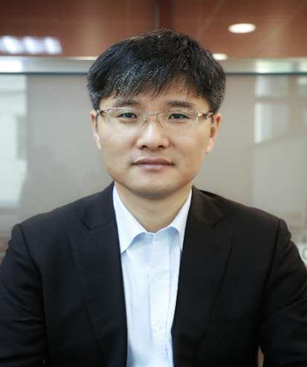

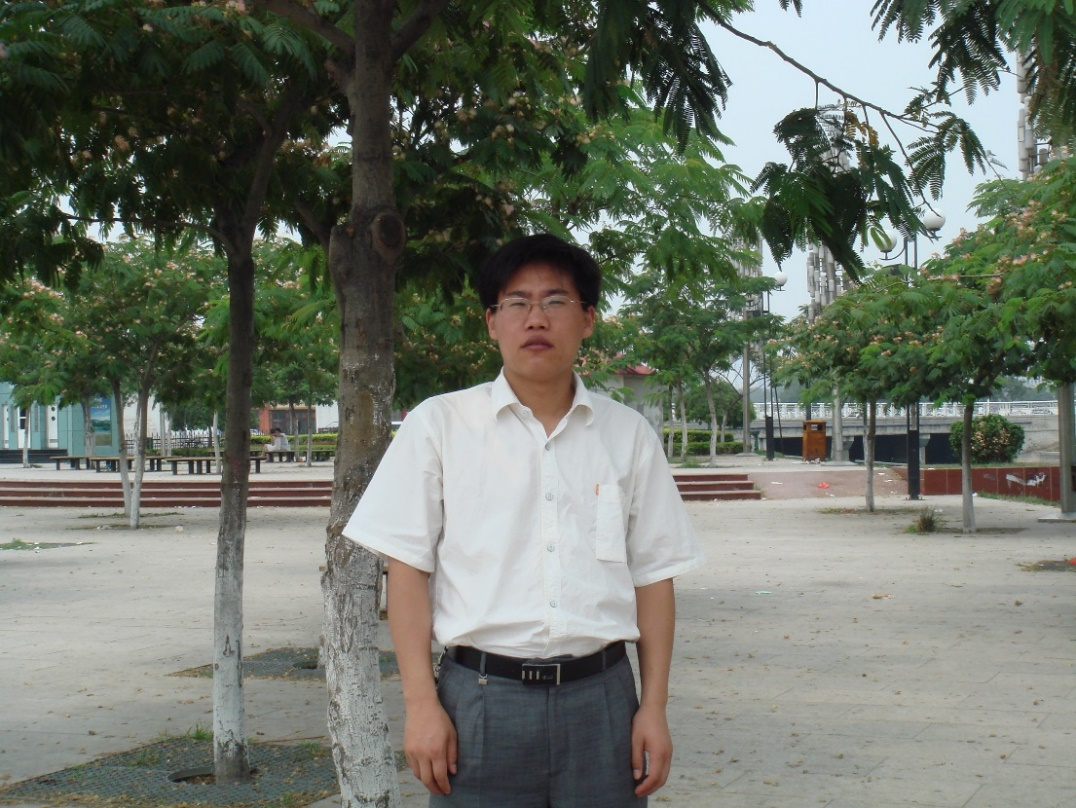
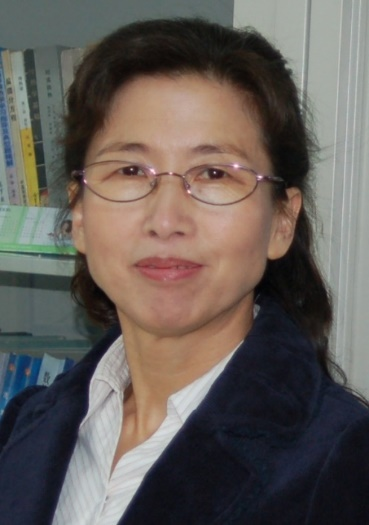
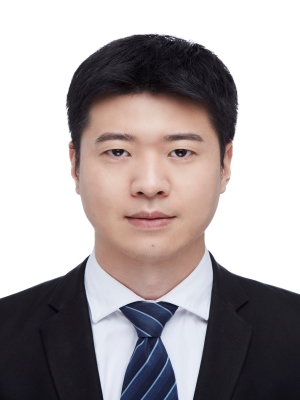
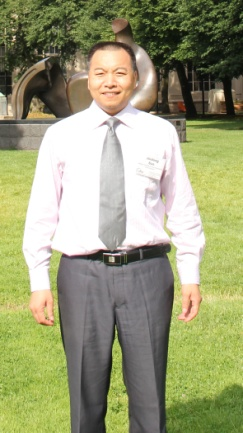
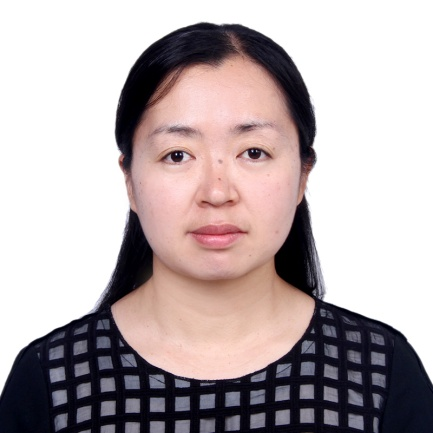

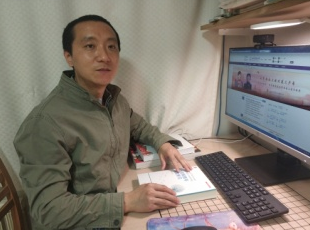
Courses
Building Environment and Energy Engineering
Course Type |
Course Attribute |
Course Title |
Semester |
Total Class Hours |
Basic courses by main category |
Compulsory |
Advanced Mathematics |
1,2 |
176 |
College Physics |
2,3 |
104 |
||
Electrician and Electron Technology |
4 |
80 |
||
Engineering Mechanics |
4 |
64 |
||
C Programming Language |
2 |
32 |
||
Professional Introduction of Energy Engineering |
1 |
16 |
||
Fluid Mechanical and Machinery |
3,4 |
64 |
||
Optional |
Introduction to Technical Economics |
5 |
16 |
|
Introduction to Engineering Management |
5 |
16 |
||
Major core courses |
Compulsory |
Engineering Thermodynamics |
3 |
48 |
Heat Transfer |
3 |
48 |
||
Built Environment |
3 |
48 |
||
Heating, Ventilation and Air Conditioning |
5 |
72 |
||
Gas Supply |
5 |
48 |
||
Building Cold and Heat Sources and Regional Energy System |
6 |
64 |
||
Major Orientation |
Compulsory |
Heat and Mass Transfer Principle and Equipment |
5 |
24 |
Measurement and Control of HVAC |
7 |
56 |
||
Optional |
Major CAD |
6 |
16 |
|
Design Method and System Analysis of HVAC |
6 |
24 |
||
Gas Combustion and Application |
6 |
32 |
||
Major practice courses |
Compulsory |
Acquaintance Practice |
2 |
20 |
Practice for Engineering Literacy and Major Culture |
3 |
20 |
||
Course Design for Gas Supply |
5 |
40 |
||
Built Environment Practice |
5 |
30 |
||
Design for Heating System |
6 |
60 |
||
Design for Air Conditioning System |
6 |
60 |
||
Design for Gas System |
6 |
60 |
||
Final Project or Thesis |
8 |
160 |
Water Science and Engineering
Course Type |
Course Attribute |
Course Title |
Semester |
Total Class Hours |
Basic courses by main category |
Compulsory |
Advanced Mathematics A(1-2) |
1-2 |
160 |
Linear Algebra |
2 |
32 |
||
Descriptive Geometry B |
1 |
32 |
||
Theory of Probability and Statistics B |
3 |
44 |
||
College physics(1-2) |
2-3 |
104 |
||
Physics Experiment(1-2) |
3-4 |
60 |
||
Introduction of Water Science and Engineering |
1 |
16 |
||
Inorganic Chemistry |
1 |
32 |
||
Organic Chemistry |
2 |
32 |
||
Physical Chemistry |
3 |
40 |
||
Engineering Mechanics B |
3 |
48 |
||
Engineering Surveying |
4 |
32 |
||
Water Analytical Chemistry |
4 |
32 |
||
Hydraulics |
4 |
48 |
||
Microbiology of Water and Wastewater Treatment |
4 |
32 |
||
Pumps and Pumping Stations |
4 |
32 |
||
Base of the Civil Engineering |
5 |
24 |
||
Hydrology and Hydrogeology for Water Supply |
5 |
32 |
||
Optional |
C Programming Language |
2 |
24 |
|
Technology and Application of Database |
3 |
24 |
||
Introduction To Architecture |
3 |
24 |
||
Major core courses |
Compulsory |
Water Supply and Sewerage Pipe System |
5 |
48 |
Building Water Supply and Drainage |
5 |
48 |
||
Water Engineering Construction |
6 |
48 |
||
Water Quality Engineering I |
6 |
48 |
||
Water Quality Engineering II |
6 |
48 |
||
Major Orientation |
Compulsory |
Utilization and Protection of Water Resource |
5 |
24 |
Economics for Water Engineering |
7 |
24 |
||
Operation and Management of Urban Water System |
7 |
16 |
||
Simulation and Calculation of Water Treatment System Design |
7 |
16 |
||
Optional |
Building Fire Protection Technology |
6 |
32 |
|
Heating Engineering |
6 |
24 |
||
Project Management for Water Engineering(Bilingualism) |
6 |
24 |
||
Urban Rainwater Engineering |
6 |
24 |
||
Industrial Water Treatment |
7 |
24 |
||
Instrument and Equipment of Water Process(Bilingualism) |
7 |
24 |
||
Theory and Technology of Water Saving(Bilingualism) |
7 |
24 |
||
Major practice courses |
Compulsory |
Course Design for Water Supply and Sewerage Pipe System |
5 |
60 |
Course Design for Pumps and Pumping Stations |
5 |
20 |
||
Course Design for Building Water Supply and Drainage |
5 |
40 |
||
Course Design for Water Plant |
6 |
30 |
||
Course Design for Wastewater Treatment |
6 |
30 |
||
Course Design for Water Construction Economics |
7 |
20 |
||
Professional Practice |
8 |
40 |
||
Graduation Project |
8 |
160 |
Energy and Power Engineering
Course Type |
Course Attribute |
Course Title |
Semester |
Total Class Hours |
Basic courses by main category |
Compulsory |
Advanced Mathematics A(1) |
1 |
92 |
Advanced Mathematics A(2) |
2 |
84 |
||
Linear Algebra |
1 |
40 |
||
Theory of Probability and Statistics (B) |
3 |
48 |
||
College physic A(1-2) |
2-3 |
112 |
||
Physics Experiment (1-2) |
3-4 |
60 |
||
Mechanical Drawing |
2 |
48 |
||
Engineering Mechanics B |
3 |
48 |
||
Basis of Mechanical Designing |
3 |
32 |
||
Electrical and Electronic Technology A |
4 |
48 |
||
Principle of Automatic Control |
4 |
24 |
||
Engineering Economy |
3 |
16 |
||
Project Management |
4 |
16 |
||
Optional |
Python Programming |
2 |
32 |
|
Computer Aided Design |
3 |
16 |
||
Computer Aided 3D Design |
4 |
16 |
||
New Energy Materials |
2 |
24 |
||
Building Environment |
3 |
24 |
||
Major core courses |
Compulsory |
Fluid Machinery |
5 |
56 |
Engineering Thermodynamics |
5 |
56 |
||
Heat Transfer |
6 |
56 |
||
Principles of Combustion |
6 |
32 |
||
Refrigeration and Air-Conditioning |
6 |
64 |
||
Heating Network and Heat Source |
7 |
64 |
||
Thermal Measurement Technology |
5 |
24 |
||
Gas Transmission and Distribution |
5 |
32 |
||
Solar Energy Utilization in Buildings (Bilingual) |
6 |
32 |
||
Thermal Process Automation |
6 |
32 |
||
Energy Storage Technology and Application |
6 |
24 |
||
Energy Planning |
7 |
24 |
||
Optional |
Heating Engineering |
5 |
24 |
|
Gas Combustion Equipment and Safety |
6 |
24 |
||
Refrigeration Equipment and Systems |
5 |
24 |
||
Cold Chain |
6 |
24 |
||
Numerical Simulation of Fluid and Heat Transfer |
6 |
16 |
||
Green and Health Building Assessment |
6 |
16 |
||
Building Information Modeling |
7 |
16 |
||
Building Energy-saving and Energy Management Contract |
7 |
16 |
||
Heat Pump Technology |
7 |
16 |
||
Building Distributed Energy Utilization |
7 |
16 |
||
Gas Power Plant and Gas Turbine |
7 |
32 |
||
Major practice courses |
Compulsory |
Military Theory |
1 |
36 |
Military Training |
1 |
112 |
||
College Chemistry Experiment |
1 |
10 |
||
Physics Experiment (1-2) |
2-3 |
60 |
||
Practice Section (1) |
2 |
40 |
||
Mechanical Course Design |
3 |
40 |
||
Fluid Mechanics Experiment |
3 |
10 |
||
Thermal Parameter Experiment |
4 |
10 |
||
Metalworking Practice |
4 |
40 |
||
Fluid Pipe Network Analysis and Calculation |
4 |
40 |
||
Thermal System Energy Consumption Calculation |
5 |
20 |
||
Heat transfer Case calculation |
5 |
20 |
||
Thermal Measurement Experiment |
5 |
10 |
||
Lab Section (1) |
5 |
20 |
||
Gas Transmission and Distribution Design |
5 |
20 |
||
Refrigeration and Air Conditioning Design |
6 |
80 |
||
Lab Section (2) |
6 |
20 |
||
Virtual Simulation Experiment |
6 |
10 |
||
Heat Source and Heating Network Design |
7 |
80 |
||
Practice Section (2) |
7 |
40 |
||
Cooling and Heating Sources and Pipe Network Operation Practice |
7 |
20 |
||
Diploma Practice |
8 |
40 |
||
Diploma Project |
8 |
160 |
Environment Science
Course Type |
Course Attribute |
Course Title |
Semester |
Total Class Hours |
Basic courses by main category |
Compulsory |
Inorganic Chemistry |
1 |
32 |
Professional Introduction of Environment Science and Technology |
1 |
32 |
||
Organic Chemistry |
2 |
32 |
||
Organic Chemistry |
3 |
32 |
||
Physical Chemistry |
4 |
40 |
||
Environmental Microbiology |
4 |
48 |
||
Optional |
mental problems and Countermeasures |
3 |
24 |
|
Introduction of Professional Literature |
4 |
24 |
||
Major core courses |
Compulsory |
Environmental Chemistry |
5 |
40 |
Environmental Monitoring |
5 |
32 |
||
Environmental Assessment |
5 |
32 |
||
Environmental Engineering(1) |
5 |
40 |
||
Environmental Engineering(2) |
6 |
56 |
||
Environmental Biology |
6 |
32 |
||
Environmental Ecology |
6 |
32 |
||
Environmental Planning and Management |
7 |
32 |
||
Major Orientation |
Compulsory |
Greenhouse Gas Inventory |
5 |
32 |
Environmental Information System |
5 |
32 |
||
Environmental Economics |
6 |
32 |
||
Greenhouse Gas Emission Monitoring |
6 |
40 |
||
Optional |
Geo-biological-chemical Circulation Model |
5 |
24 |
|
Drainage Pipeline System |
5 |
24 |
||
Environmental Soilogy |
5 |
32 |
||
Ecological restoration technology of urban water environment |
6 |
32 |
||
City Rain Water Engineering |
6 |
32 |
||
Application of Computer in Environmental Science |
6 |
32 |
||
Hazardous waste management and treatment technology |
6 |
32 |
||
Resource and Energy Recycle Utilizing Technology |
7 |
24 |
||
Building Water Supply and Drainage |
7 |
24 |
||
Major practice courses |
Compulsory |
Inorganic Chemistry Experiment |
1 |
20 |
Organic Chemistry Experiment |
2 |
20 |
||
Understanding Practice 1 |
2 |
40 |
||
Analytical Chemistry Experiment |
3 |
20 |
||
Understanding Practice 2 |
3 |
20 |
||
Physical Chemistry Experiment |
4 |
10 |
||
Understanding Practice 3 |
4 |
40 |
||
Environment Monitoring Experiment |
5 |
40 |
||
Environment Chemistry Experiment |
4 |
20 |
||
Environmental Assessment course design |
5 |
20 |
||
Greenhouse Gas Inventory course design |
5 |
20 |
||
Environmental Engineering Experiment |
6 |
40 |
||
Greenhouse Gas Emission Monitoring experiment |
6 |
20 |
||
Environmental Biological Experiment |
6 |
20 |
||
Ecological Experiment |
6 |
20 |
||
Environmental Engineering Course Design |
7 |
80 |
||
Graduation Practice |
7 |
40 |
||
Graduation Design (Paper) |
8 |
150 |
||
Optional |
Innovation research of Environmental Science |
1-6 |
20 |
|
Innovation Practice of Environmental Science |
7 |
20 |
||
Academic competition |
1-8 |
20 |
Environmental Engineering
Course Type |
Course Attribute |
Course Title |
Semester |
Total Class Hours |
Basic courses by main category |
Compulsory |
Descriptive Geometry B |
1 |
36 |
Inorganic chemistry |
1 |
32 |
||
Environmental introduction |
1 |
16 |
||
Organic chemistry |
2 |
32 |
||
Analytical chemistry |
3 |
32 |
||
Environmental Microbiology |
3 |
48 |
||
Fluid mechanics (1) |
2 |
36 |
||
Principle of Environmental Engineering |
3 |
48 |
||
Optional |
Fundamental of Python Programming |
2 |
64 |
|
Global environmental problems and Countermeasures |
3 |
24 |
||
Introduction of professional literature |
4 |
24 |
||
Fluid mechanics (2) |
5 |
46 |
||
Engineering Mechanics B |
3 |
48 |
||
Major core courses |
Compulsory |
Water pollution control engineering (1) |
5 |
40 |
Environmental assessment |
5 |
32 |
||
Solid waste treatment and disposal |
6 |
32 |
||
Water pollution control engineering (2) |
6 |
48 |
||
Air pollution control engineering |
6 |
48 |
||
Environmental planning and management |
7 |
32 |
||
Major Orientation |
Compulsory |
urban hydrology |
5 |
24 |
Water supply and drainage pipeline system |
5 |
40 |
||
Urban stormwater engineering |
6 |
32 |
||
Environmental engineering research and design |
6 |
24 |
||
Environmental engineering economy |
6 |
24 |
||
Environmental monitoring |
5 |
32 |
||
Optional |
Construction technology of Environmental Engineering |
5 |
24 |
|
Environmental engineering cost and project management |
6 |
24 |
||
Physical pollution control |
6 |
24 |
||
Soil and groundwater pollution control |
7 |
24 |
||
Ecological Engineering |
7 |
24 |
||
Major practice courses |
Compulsory |
Experiment of Inorganic chemistry |
1 |
20 |
Experiment of Organic chemistry |
2 |
20 |
||
Understanding practice(1) |
2 |
40 |
||
Experiment of Analytical chemistry |
3 |
20 |
||
Understanding practice(2) |
3 |
20 |
||
Engineering Surveying Practice |
4 |
40 |
||
Curriculum design on Water pollution control engineering (1) |
5 |
40 |
||
Experiment of Environmental Engineering (1) |
6 |
30 |
||
Curriculum design on Water pollution control engineering (2) |
6 |
40 |
||
Course design on solid waste treatment and disposal |
7 |
40 |
||
Experiment of Environmental Engineering (2) |
7 |
10 |
||
Course design on air pollution control |
7 |
40 |
||
Production Practice |
7 |
60 |
||
Graduation Field Work |
8 |
60 |
||
Graduation Project |
7 |
140 |
Environmental Ecological Engineering
Course Type |
Course Attribute |
Course Title |
Semester |
Total Class Hours |
Basic courses by main category |
Compulsory |
Professional Introduction of Environment Science and Technology |
1 |
48 |
Environmental Microbiology |
4 |
48 |
||
Environmental Ecology |
4 |
32 |
||
Environmental Soil |
5 |
32 |
||
Optional |
Environmental Biology |
4 |
24 |
|
Major core courses |
Compulsory |
Principle of ecological restoration |
5 |
32 |
Ecological monitoring and evaluation |
6 |
32 |
||
Landscape Ecology |
6 |
32 |
||
Urban ecological planning and design |
7 |
32 |
||
Major Orientation |
Compulsory |
Urban stormwater engineering |
6 |
32 |
Water ecological restoration engineering design |
6 |
32 |
||
Wetland Science and Engineering |
6 |
24 |
||
Optional |
Soil pollution remediation engineering |
7 |
16 |
|
Major practice courses |
Compulsory |
Course design on water pollution control engineering |
6 |
40 |
Course design on urban Stormwater engineering |
6 |
40 |
||
Course design on water ecological engineering restoration |
7 |
40 |
||
Urban ecological planning and design |
7 |
40 |
||
Graduation Project |
8 |
140 |